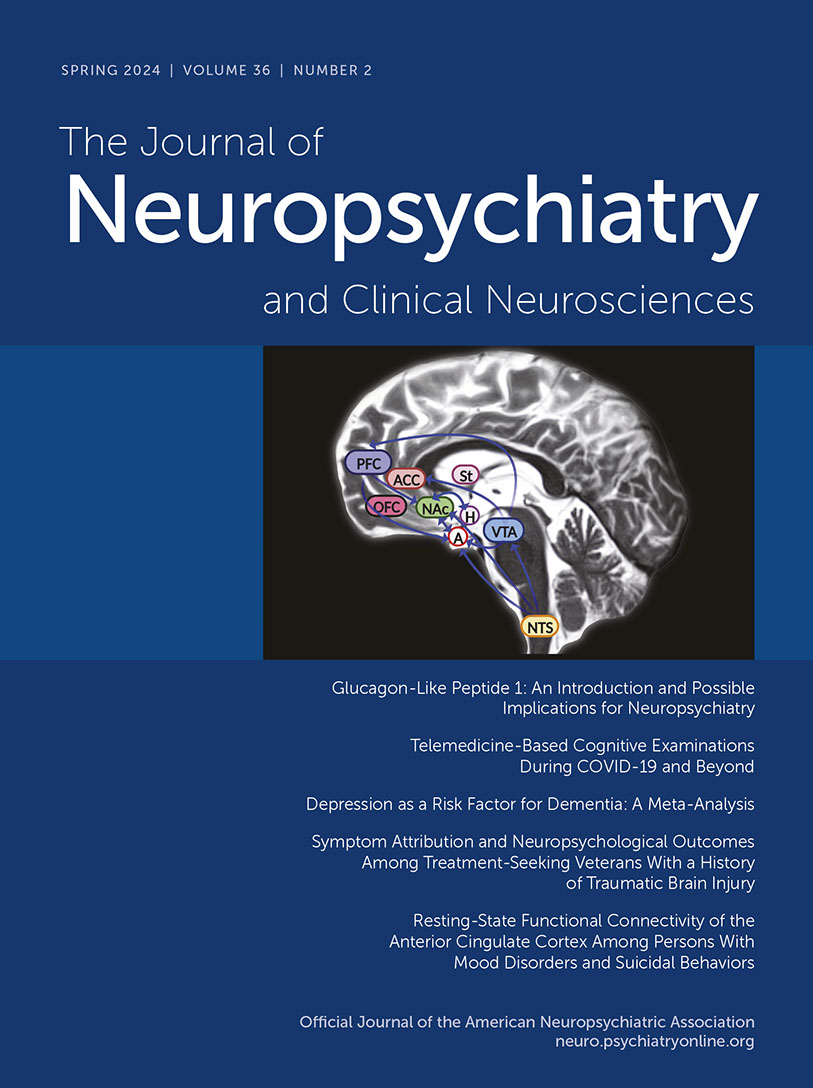Impulsivity and Psychiatric Diagnoses as Mediators of Suicidal Ideation and Suicide Attempts Among Veterans With Traumatic Brain Injury
Abstract
Objective:
Traumatic brain injury (TBI) is a risk factor for suicide, but questions related to mechanisms remain unanswered. Impulsivity is a risk factor for suicide and is a common sequela of TBI. The authors explored the relationships between TBI and both suicidal ideation and suicide attempts and explored whether impulsivity and comorbid psychiatric diagnoses mediate these relationships.
Methods:
This cross-sectional retrospective chart review study included 164 veterans enrolled in a previous study. Sixty-nine veterans had no TBI history, and 95 had a TBI history (mild, N=44; moderate, N=13; severe, N=12; and unclear severity, N=26). To examine the associations between TBI and suicidal ideation or suicide attempts, as well as potential mediators of these relationships, chi-square tests, t tests, and logistic regression models were used.
Results:
Unadjusted analyses indicated that veterans with TBI were more likely to report suicidal ideation; however, in analyses controlling for mediators, this relationship was no longer significant. Among veterans with TBI, suicidal ideation was related most strongly to high impulsivity (odds ratio=15.35, 95% CI=2.43–96.79), followed by depression (odds ratio=5.73, 95% CI=2.53–12.99) and posttraumatic stress disorder (odds ratio=2.57, 95% CI=1.03–6.42). TBI was not related to suicide attempts, yet suicide attempts were related to high impulsivity (odds ratio=6.95, 95% CI=1.24–38.75) and depression (odds ratio=3.89, 95% CI=1.56–9.40).
Conclusions:
These findings suggest that impulsivity, followed by psychiatric diagnoses, most strongly mediate the relationships between TBI and both suicidal ideation and suicide attempts. Impulsivity may be mechanistically related to, and serve as a future treatment target for, suicidality among veterans with TBI.
Access content
To read the fulltext, please use one of the options below to sign in or purchase access.- Personal login
- Institutional Login
- Sign in via OpenAthens
- Register for access
-
Please login/register if you wish to pair your device and check access availability.
Not a subscriber?
PsychiatryOnline subscription options offer access to the DSM-5 library, books, journals, CME, and patient resources. This all-in-one virtual library provides psychiatrists and mental health professionals with key resources for diagnosis, treatment, research, and professional development.
Need more help? PsychiatryOnline Customer Service may be reached by emailing [email protected] or by calling 800-368-5777 (in the U.S.) or 703-907-7322 (outside the U.S.).



